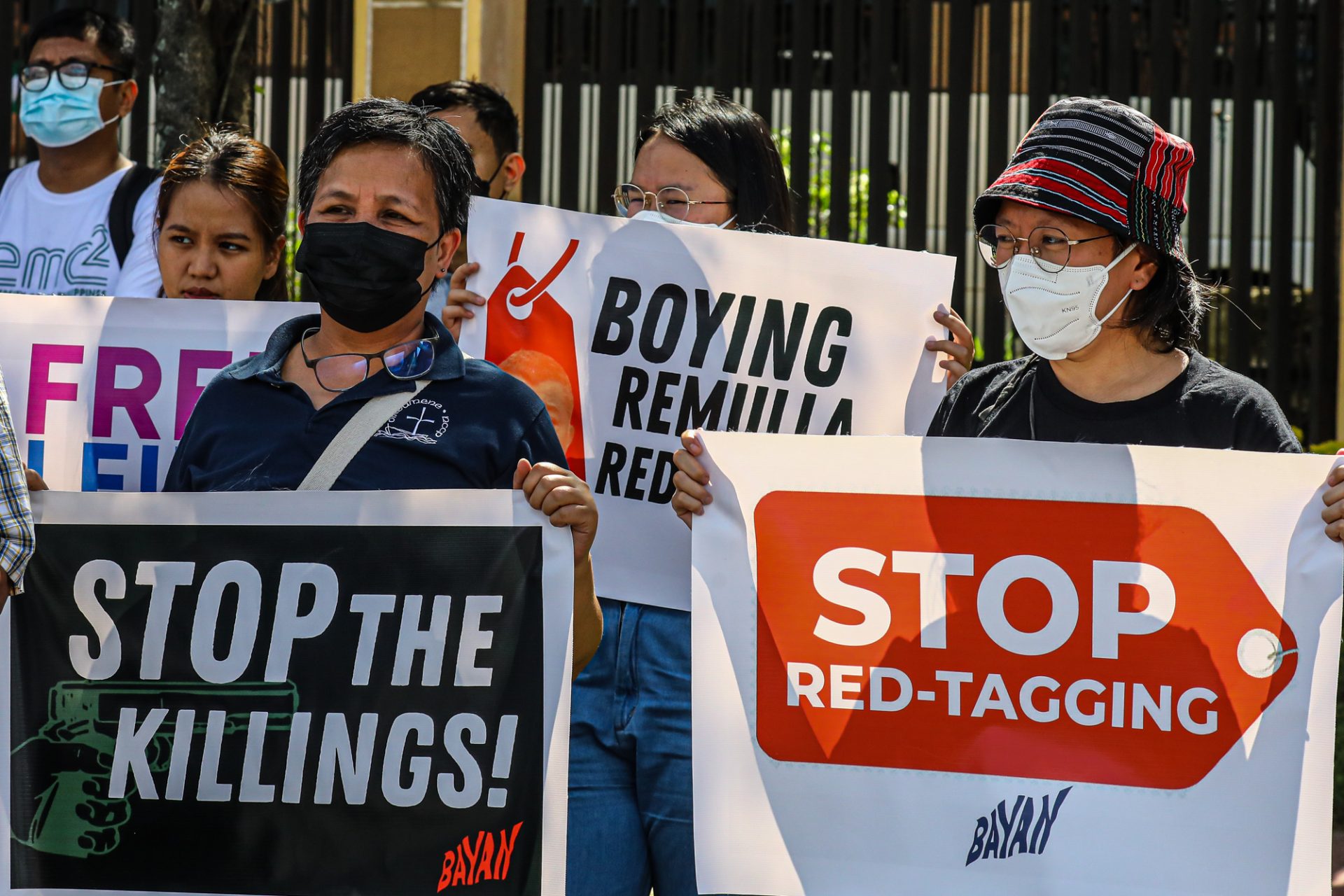The Philippine government failed this week to convince the international community that the human rights situation in the Philippines has improved.
Several countries in the United Nations Human Rights Council expressed concerns about ongoing human rights violations in the Philippines.
Austria, Costa Rica, Portugal, Ireland, Lichtenstein, among others, cited the Philippine government’s decision to withdraw from the Rome Statute creating the International Criminal Court.
Romania recommended a stop to “red-tagging,” a practice of labeling government critics as communists, while Sierra Leone recommended the abolition of the National Task Force to End Local Communist Armed Conflict.
Philippine Justice Secretary Jesus Crispin Remulla, however, denied the existence of a government “red-tagging” policy, alleging it was just an “invented word” by activists.
He said the Philippines provided an “enabling space” for civil society and human rights defenders.
“We have a thriving, vibrant and participative democratic space,” he said, adding that reforms were underway to strengthen the internal affairs arm of the national police to “answer many questions about the impunity being talked about.”
Remulla also said the new administration of President Ferdinand Marcos had refocused the campaign on illegal drugs toward poverty alleviation and rehabilitation.
He allayed fears of the return of capital punishment, saying that “President Marcos is not inclined to restore the death penalty anytime in his term in office.”
The Philippines is undergoing the fourth cycle of Universal Periodic Review before the United Nations Human Rights Council in Geneva this week.
The Philippine Alliance of Human Rights Advocates said the Universal Periodic Review “should have teeth” and compel the Philippine government “to exact accountability for the killings in the drug war and other human rights violations.”
The last Universal Periodic Review that the Philippines underwent was in 2017 when the United Nations Human Rights Council was made aware of the killings in former president Rodrigo Duterte’s “drug war.”
The killings, however, “still rose at such an alarming rate that it merited an investigation by the International Criminal Court,” said PAHRA.
“Council members, through the [Review], must deeply examine if the joint program has actually moved investigations to hold accountable the perpetrators of killings in the drug war,” it added.
Human rights group Karapatan, meanwhile, said the Philippine government avoided giving information on the social and economic situation of Filipinos especially after the pandemic lockdowns.
“It diverted attention from this by listing laws, policies, programs and other measures that appear substantial but are actually marginal in impact especially against the true magnitude of socioeconomic distress,” said the group.







